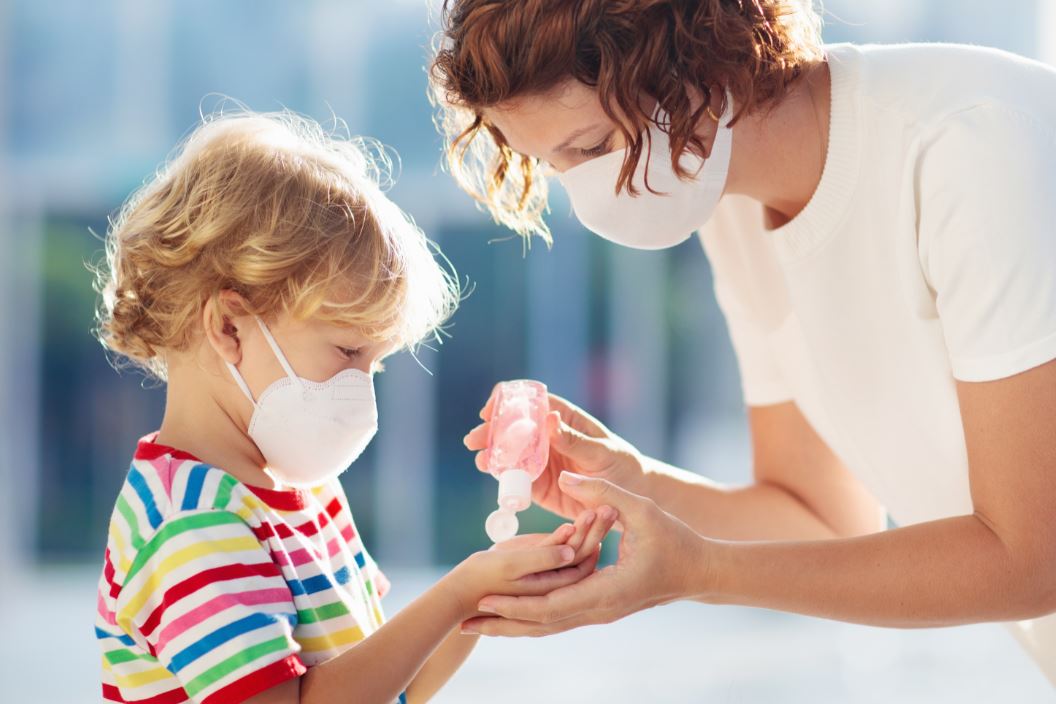HDR UK Weekly COVID-19 Round-Up
26 June 2020
Our weekly updates highlight the range of projects members of the HDR UK community are working on to address the COVID-19 pandemic and global challenge. Read on to find out about the latest projects and areas of work.
Read our latest SAGE Report (23 June 2020)
Updates
COVID-19 and an increase in anxiety and lower wellbeing, particularly in younger adults
Using data from COVID-19 surveys carried out in April and May 2020 within the Avon Longitudinal Study of Parents and Children (ALPSAC) and Generation Scotland, researchers wanted to determine how mental health has changed before and during the COVID-19 pandemic. They also looked to examine whether there are groups of people who are at a higher risk of poor mental health during this pandemic stage.
The research team, including members of the HDR UK community, found that there has been an increase in anxiety and lower wellbeing, in relation to COVID-19, and this was particularly true in younger adults. The results also found that women, those with pre-existing mental and physical health conditions, those living alone or in socio-economic adversity had greater depression and anxiety suggesting specific groups may be at greater risk. As such, the results support recent calls for increased funding for mental health services.
Ethnic Minorities in hospital with COVID-19 more likely to be admitted to critical care
There have been a number of studies that have explored ethnic inequalities when looking at COVID-19 specific outcomes, but the results have often been conflicting. A recent pre-print paper, led by HDR UK community members, looked at data from the ISARIC CCP-UK study (which includes patients from 260 hospitals across England, Scotland and Wales) to explore ethnic inequalities in critical care admission patterns and the need for invasive mechanical ventilation in those who have already been admitted to hospital due to COVID-19.
The results suggest that those from ethnic minorities who were in hospital with COVID-19 were more likely to be admitted to critical care. This was despite them being younger with fewer comorbidities, as well as having similarities in how long they had presented with symptoms and their levels of disease severity when they were admitted to hospital.
Excess mortality in people with cardiovascular disease during and after COVID-19
We have already seen evidence that some cardiovascular disease conditions increase people’s mortality risk from COVID-19 and therefore puts these patients at a higher risk. A research team, led by Dr Amitava Banerjee and includes colleagues from HDR UK London, have now also found that supply and demand for acute cardiovascular care has dramatically reduced across different countries during the time of this pandemic. This indicates that there is potential excess mortality in some cardiovascular disease conditions directly through COVID-19 itself but also through changes in healthcare.
Find out more in the pre-print
Link between weight and COVID-19 related mortality
A recent pre-print paper examined the link between body mass index (BMI) and the risk of testing positive for COVID-19 as well as the risk for COVID-19 related death. Using data from UK Biobank, the research team found that higher BMI was strongly associated with an increased risk in testing positive and COVID-19 related mortality, but also noted a stronger link in younger people and non-white ethnicities.
Further research is needed to explore the cause and effect but early findings from this paper suggest that interventions to improve BMI could reduce the risk of COVID-19.
Six distinct symptom presentations identified using ZOE COVID-19 Symptom Tracker
Researchers, including those from the HDR UK community, have been using time-series data from the ZOE COVID-19 symptom tracker app with an aim to help predict risk. Time-series tracks the movement of the specific data you’re looking at, in this case COVID-19 symptoms, over a certain time period with data being recorded at regular periods.
Using this approach, they were able to identify six distinct clusters of symptom presentations. Given that no single symptom could help predict the severity of the disease, this has the potential to be used as a clinical prediction tool and help inform medical resourcing needs before it is needed and also monitor those who are at risk.
‘Health Data Science in the COVID-19 Era’ – HDR UK’s One Institute Conference
If you missed our One Institute Conference on Tuesday 16 June 2020 or want to re-watch some of the sessions that inspired you the most, you’ll be pleased to know that all plenary sessions, lightning talks and breakout session recordings are now up on our website along with a great summary report of the day.
It was a fantastic event that saw over 900 people in the health data science community come together to share ideas, experiences and research findings around the COVID-19 pandemic on a global scale.
Tweet of the Week
It’s time to highlight the ‘Tweet of the Week’. This week we’re shining a light on a blog written by HDR UK’s ‘Team of the Year’ 2020 winners, John Bradley and his team – find out more about the team and what they’ve been working on.
BLOG TUESDAY! ICYMI, at our One Institute Conference last week we announced that John Bradley and his team won our Team of the Year award! Here he tells us a little bit more about the team and the project they worked on together.https://t.co/5dr9PYIrQR
— Health Data Research UK (@HDR_UK) June 23, 2020
More information and tools
1. Submit your research question or project – we are calling on anyone with a research question for COVID-19 that requires health data to share your ideas via our online form.
Questions will be shared in our HDR UK COVID-19 Knowledge + Skills Matchmaker. We prioritise all of the questions using a transparent and objective process to identify the questions that most urgently need to access to data. Progress of the prioritised questions is reported weekly to the government’s Scientific Advisory Group for Emergencies (SAGE).
2. HDR UK GitHub repository – The HDR UK community is developing computer-based tools and methodologies to analyse and handle health data, including those that can help overcome the COVID-19 challenge. These are all shared in a central repository, which is open to the public, so that we can all learn from each other and build on each other’s work. They are shared in HDR UK’s area of GitHub
3. COVID-19 Slack channels – researchers and innovators looking to collaborate to use health data to address the pandemic can apply to join our dedicated Slack channels. Complete the form to register your interest in joining here.
4. Take a look at our Skills + Knowledge Matchmaker to see a full list of COVID-19 ongoing projects, or visit COVID-19 page to see the latest version of HDR UK’s strategy to support efforts to tackle the pandemic.



